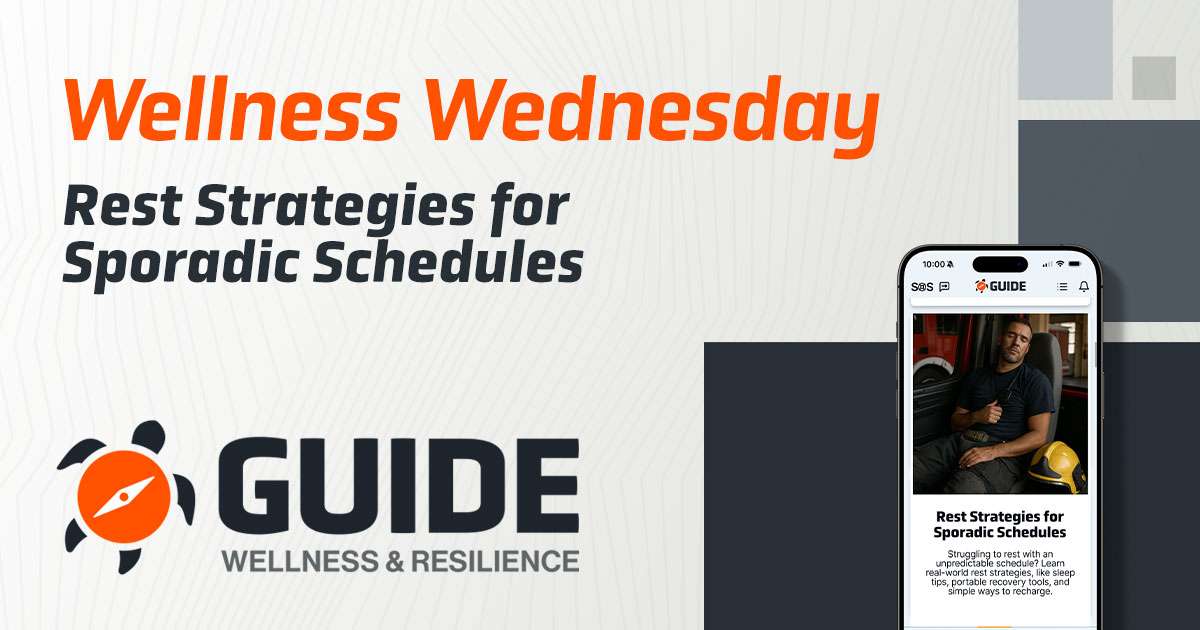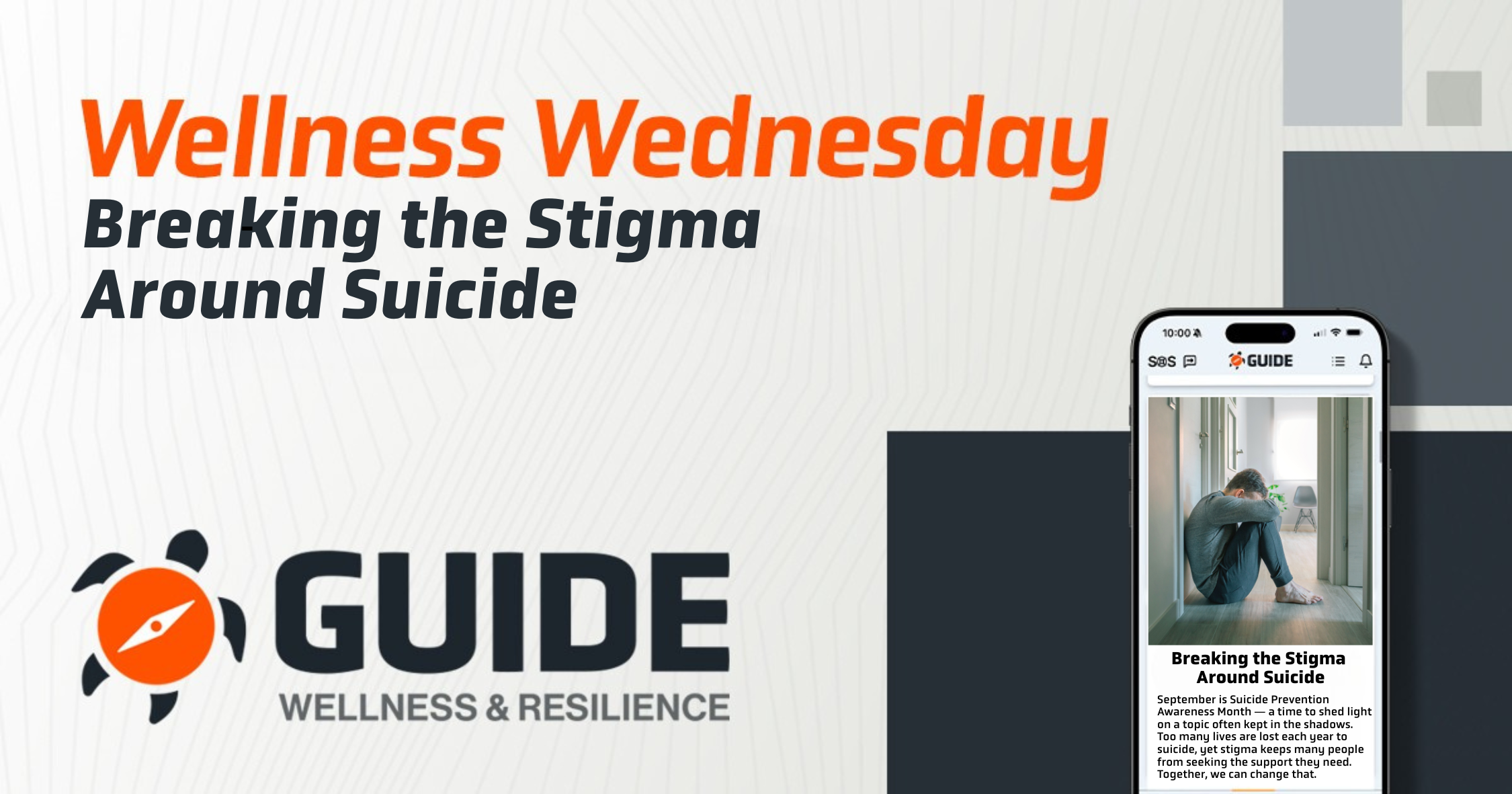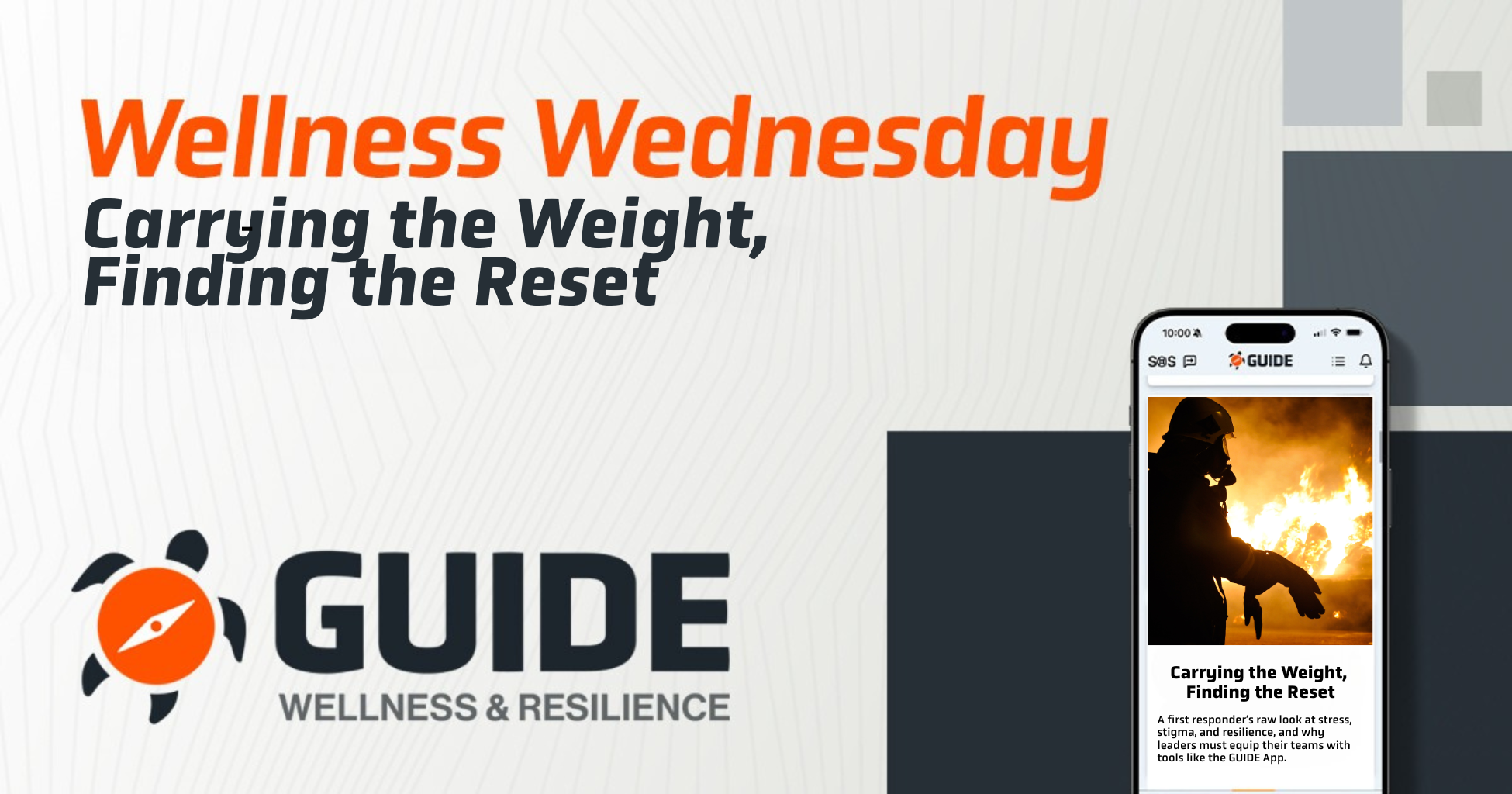If you work in public safety or emergency response, you already know: rest doesn’t always come easy. Between night shifts, early calls, long hours, and unexpected overtime, your schedule rarely looks the same two days in a row.
Trying to get quality rest with a sporadic schedule can feel frustrating—or even impossible. But here’s the truth: you can still recharge your body and mind, even if your sleep is unpredictable.
This week’s Wellness Wednesday is all about practical, real-life rest strategies for people with rotating shifts, on-call duties, and irregular routines. Because rest isn’t a luxury—it’s a tool for staying sharp, steady, and strong.
Why Rest Matters—Even More with an Unpredictable Schedule
Rest is more than sleep. It’s how your body and brain recover from stress, physical effort, and emotional overload. Without it, you face:
- Slower reaction times
- Brain fog and memory issues
- Increased irritability and anxiety
- Higher risk of injury
- Weakened immune system
- Burnout and fatigue
When your schedule changes all the time, it puts extra strain on your nervous system and sleep cycle. That means your recovery needs are even higher—and even more important.
7 Rest Strategies for Sporadic Schedules
Here are seven real-world strategies to help you rest, recover, and stay resilient—even if your schedule is all over the place.
1. Anchor Your Wake-Up and Wind-Down Routines
Even if you can’t go to bed at the same time every day, you can create routines that signal your body it’s time to rest.
Try This:
- After a shift, use the same “wind-down ritual” (shower, change clothes, stretch, read, etc.)
- Before starting your day, repeat a short “wake-up routine” (light exposure, water, movement)
Why it helps: These rituals train your brain to shift gears—making it easier to rest even after chaotic hours.
2. Nap With Intention
Short naps can be your best recovery tool—if you time them right.
Nap Tips:
- 10–20 minutes: Quick alertness boost without grogginess
- 60–90 minutes: Full sleep cycle that restores mental and physical energy
- Avoid napping too close to bedtime—ideally keep naps earlier in your “day,” even if that’s at 2 p.m.
Why it helps: Strategic naps reduce sleep debt, improve mood, and help make up for short nights.
3. Prioritize Sleep Quality Over Sleep Quantity (When You Have To)
We all know 7–9 hours is ideal. But when you’re working a rotating schedule, that isn’t always possible.
Focus on quality:
- Make your sleep space dark, cool, and quiet
- Use blackout curtains, a sleep mask, and white noise
- Turn off screens 30 minutes before sleeping
- Use a fan or app to block out daytime noise
Why it helps: Even if you can’t sleep long, creating ideal conditions helps your body rest more deeply.
4. Use Light to Reset Your Body Clock
Your body has a natural rhythm—called your circadian rhythm—that tells you when to sleep and when to wake. Light is the biggest tool for keeping that rhythm in balance.
Use light to your advantage:
- Get bright light (preferably natural sunlight) when you wake up, even if it’s in the afternoon
- Limit screen time and avoid bright light 1–2 hours before sleep
- Wear sunglasses when heading home after a night shift to avoid “tricking” your brain into staying awake
Why it helps: Light helps “reset” your sleep clock, especially during shift transitions.
5. Create a Portable Rest Kit
If your rest spots change often, be prepared to rest anywhere by building a simple kit you can keep in your bag or car.
Rest Kit Essentials:
- Eye mask
- Earplugs or small white noise machine
- Travel pillow
- Essential oils or lotion for relaxing scent (like lavender)
- Water bottle to stay hydrated
Why it helps: Having what you need on hand makes it easier to rest when the opportunity pops up—even in less-than-perfect conditions.
6. Use Mental Rest, Not Just Physical Rest
Rest isn’t only about sleep. Your brain needs breaks from emotional pressure and decision-making too.
Try micro-breaks during your shift:
- Close your eyes and take 3 deep breaths
- Step outside for 2 minutes of fresh air
- Listen to calming sounds or music during downtime
- Do a “brain dump” at the end of shift—write down thoughts to clear your head
Why it helps: These small moments give your brain time to reset—even if your body stays on the go.
7. Plan Your Week with Rest in Mind
If your schedule is unpredictable, look ahead and plan when you can recharge—just like you’d plan a workout or appointment.
Build in recovery windows:
- Block off 30–60 minutes for rest after known stressful days
- Protect at least one day off per week for full mental reset
- Communicate with family or friends about when you’ll need quiet time
Why it helps: Planning ahead helps you protect your energy and avoid burnout from back-to-back demands.
What to Do When Your Sleep Is All Over the Place
Even with the best habits, sometimes your schedule just doesn’t allow for solid sleep. That’s okay. Do your best with what you have.
When you can’t get a full night’s sleep:
- Take short naps when you can
- Stay hydrated and eat light, balanced meals
- Avoid caffeine 4–6 hours before your next rest
- Use breathing exercises or guided audio to help relax your body
Remember, recovery isn’t all or nothing. Every small effort counts.
How to Know If You Need More Rest
Listen to your body. It’s always giving you clues.
Signs you may be low on rest:
- Brain fog or forgetfulness
- Trouble focusing on basic tasks
- Increased irritability or anxiety
- Feeling physically tense or run down
- Needing more caffeine to get through your day
If you notice these signs, it’s your cue to make rest a priority—even if it’s in small, manageable ways.
Rest = Readiness
You’re expected to be at your best when people need you most. But you can’t pour from an empty cup.
Rest is what keeps you:
- Mentally sharp
- Physically strong
- Emotionally steady
- Professionally effective
It’s not about laziness. It’s about longevity. The more you recharge now, the more you’ll have to give later.
You may not have a perfect schedule. You may not always get 8 hours of sleep. But you can build simple, smart rest habits that protect your body, mind, and emotional well-being—even with unpredictable shifts.
Start small. Stretch after work. Nap when you can. Breathe between calls. Protect your recovery windows.
Because you’re not just surviving the job—you’re training for the long run. And rest is your best partner in that mission.




